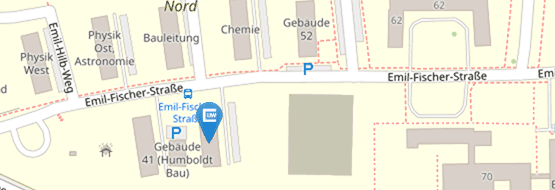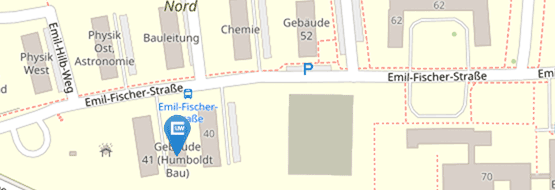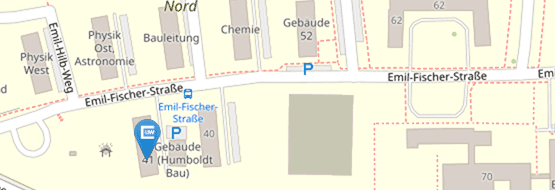Autumn School 2018
Digital Tools and Mathematical Modelling in Mathematics Education (October 07 – 12, 2018)
Didactics of Mathematics – or Mathematics Education – is a research area with many widespread fields of interest. Young researchers might get lost in the great variety of research areas. Beyond the concentration on their own scientific topic or special field of interest, they have to be able to evaluate their work in the whole field of mathematics education so that they recognize the meaning of their own work concerning the up-coming perspectives in the future.
Topics
We would like to invite young researchers (master-students, PhD-students and post-doctoral students) in the field of mathematics education to participate in our upcoming Autumn School “Digital Tools and Mathematical Modelling in Mathematics Education”. The Autumn School will bring together young researchers and acknowledged experts to discuss perspectives on and up-coming fields of interest in the learning and teaching of mathematics. The intent of the school is to allow young researchers from different countries to
-
compare different research methods and approaches in advance of their own study;
-
present their research projects, problems and preliminary results and discuss them with an audience of fellow researchers and highly qualified experts;
-
connect with international fellow researchers from the community, exchange opinions and ideas about the work of other researchers and to lay the foundations for a future cooperation in the field of mathematics education.
Invited Speakers
-
Regina Bruder (TU Darmstadt, Germany)
Mathematical Modelling in Germany: Approaches and Developments
This introduction to the German discussion of mathematical modelling presents definitions, pedagogical aims, typical modelling cycles and key examples of the German debate on mathematical modelling and gives an overview of central pragmatic and specific approaches. In addition this presentation addresses current development in research, educational standards, modelling competencies, comparative studies and final exams and discusses the role of technology in mathematical modelling. -
Gilbert Greefrath (WWU Muenster, Germany)
Aspects of modeling in the COACTIV-Study
In the COACTIV research program mathematics teachers of German PISA-students were examined and tested in 2003/2004. In the talk several aspects concerning "modeling competencies" that were implemented in the framework of COACTIV will be introduced and respective results will be reported. By doing so, the PISA-students' attitudes to and competencies in mathematical modelling will be addressed in the same way as corresponding teacher scales (e.g., on the role that modeling plays in their teaching or whether they consider modeling crucial for the discipline of mathematics at all). Both for student and teacher scales psychometric properties and descriptives, but also school type differences will be reported and correlations between student and the corresponding teacher scales will be analyzed. The talk will be based on a book-chapter by Bruckmaier, Krauss & Blum (that currently is in press). -
Stefan Krauss (University of Regensburg, Germany)
Artefacts in the real world and artefacts in mathematics education research
My talk has two themes. The first is linked to a research project ‘Linking school mathematics to out-of-school activities’. Teacher-researchers in this project chose activities that they considered relevant to their students. Artefacts (and digital artefacts in particular) abounded in these activities. The second theme is the use of digital technologies in data collection and analysis. In this part I shall report on the work of two PhD students (one of whom researched student modelling) who collected data that could not have been collected if they had not used digital technology (and, in one case, the technology allowed two distinct methodological approaches to be ‘networked’). -
John Monaghan (University of Agder, Norway and University of Leeds, Great Britain)
Dynamic geometry and its manifold usages: implications of modelling
Dynamic geometry (DG) software is perhaps the most widely used digital technology. Yet, its usages are often teacher-centered and limited to illustrating geometric properties. Drawing on research highlighting various functions of dragging, I will present manifold usages allowed by DG affordances, question their pedagogical added value and discuss their possible exploitation for mathematics modelling. -
Jana Trgalová (University of Lyon, France)
Mathematics as a tool (to solve real-life problems) and mathematics learning with tools
In this presentation, I will discuss quantitative and qualitative research on concept-tool dualities. For example, mathematical concepts (logarithms, integrals, etc) are not just pure ‘ideas’ but also tools that assist people to solve real-life problems (aka mathematical modelling). We can also look at digital tools, and ask how the learning of mathematics becomes more conceptual, more engaging … or more mechanistic and procedural? -
Pauline Vos (University of Agder, Norway)
Long-term construction of modelling competence
Intelligent knowledge about the mathematical modelling (as a reflecting knowledge) and action competence with regard to the relevant part actions of modelling can be built up horizontally (within one school year) and vertically (about the school years away, e.g., with the so-called competence trainings). For methodical realisations in the lessons suitable learner's models are required. The activity theory offers such a model. On this basis ways are indicated how to come to the competence development models for mathematical modelling which can illustrate a long-term competence construction at individual level. As a conclusion from these considerations central elements of a teaching concept are discussed for sustainable acquisition of modelling competence. Moreover results from the project LEMAMOP as well as technology-supported learning offers from the teacher training are reflected. Both show the rich potential of digital tools for mathematical competence construction.





